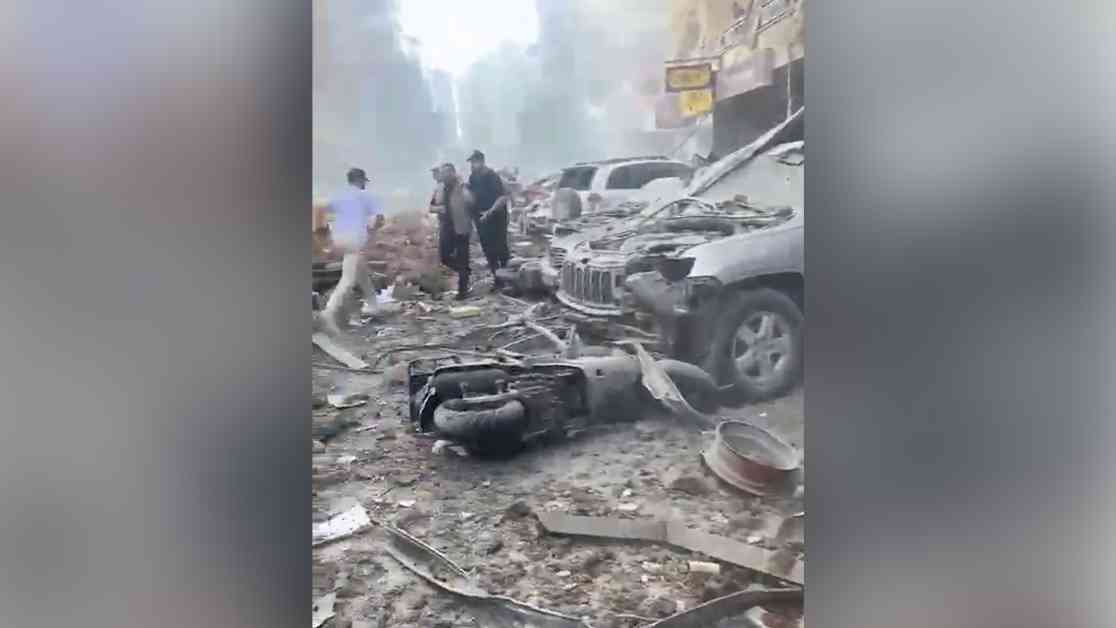Israeli Airstrikes Devastate Beirut Neighborhood
On a fateful day in September 2024, Israeli airstrikes wreaked havoc on the densely populated Dahiyeh neighborhood in Lebanon’s capital, Beirut. The attacks were reportedly aimed at a senior Hezbollah member but resulted in widespread damage and chaos among the innocent residents caught in the crossfire.
The deafening sound of explosions echoed through the streets as buildings crumbled and smoke filled the air. The once bustling neighborhood transformed into a scene of destruction and despair, with families fleeing for safety and emergency responders rushing to aid the wounded.
The Human Toll
The toll on human lives was devastating, with reports of casualties and injuries mounting by the hour. Innocent men, women, and children bore the brunt of the airstrikes, their lives forever altered by the senseless violence that descended upon their community.
One survivor, a young mother named Aisha, tearfully recounted the horrors she witnessed as her home was reduced to rubble. “I lost everything in an instant,” she said, her voice trembling with emotion. “My children are traumatized, and I fear for their future in this war-torn land.”
The Aftermath
In the aftermath of the airstrikes, the streets of Dahiyeh lay in ruins, with debris scattered everywhere and the stench of smoke lingering in the air. Survivors sifted through the wreckage, searching for any remnants of their former lives amidst the devastation.
Local hospitals were overwhelmed with the influx of injured residents, their resources stretched thin as they struggled to provide care for the wounded. The international community watched in horror as images of the destruction circulated online, sparking outrage and condemnation of the senseless violence.
The Political Fallout
The airstrikes in Dahiyeh reignited tensions in the region, with political leaders and activists alike condemning the attack as a violation of international law. The Lebanese government vowed to hold Israel accountable for its actions, calling for an immediate ceasefire and a return to diplomatic negotiations.
Israeli officials defended the airstrikes as necessary for national security, citing the threat posed by Hezbollah’s presence in the region. However, critics argued that the targeting of civilian areas was a blatant disregard for human rights and a violation of the laws of war.
As the dust settled in Dahiyeh, the scars of the airstrikes remained etched in the minds of its residents, a painful reminder of the fragility of peace in the region. The international community called for a swift resolution to the conflict, urging both sides to seek a peaceful solution to prevent further bloodshed and devastation.
In the wake of the airstrikes in Dahiyeh, the world was left to grapple with the harsh realities of war and the toll it takes on innocent lives. As the sun set on the ravaged neighborhood, a sense of sorrow and loss hung heavy in the air, a stark reminder of the human cost of conflict in the modern world.



























